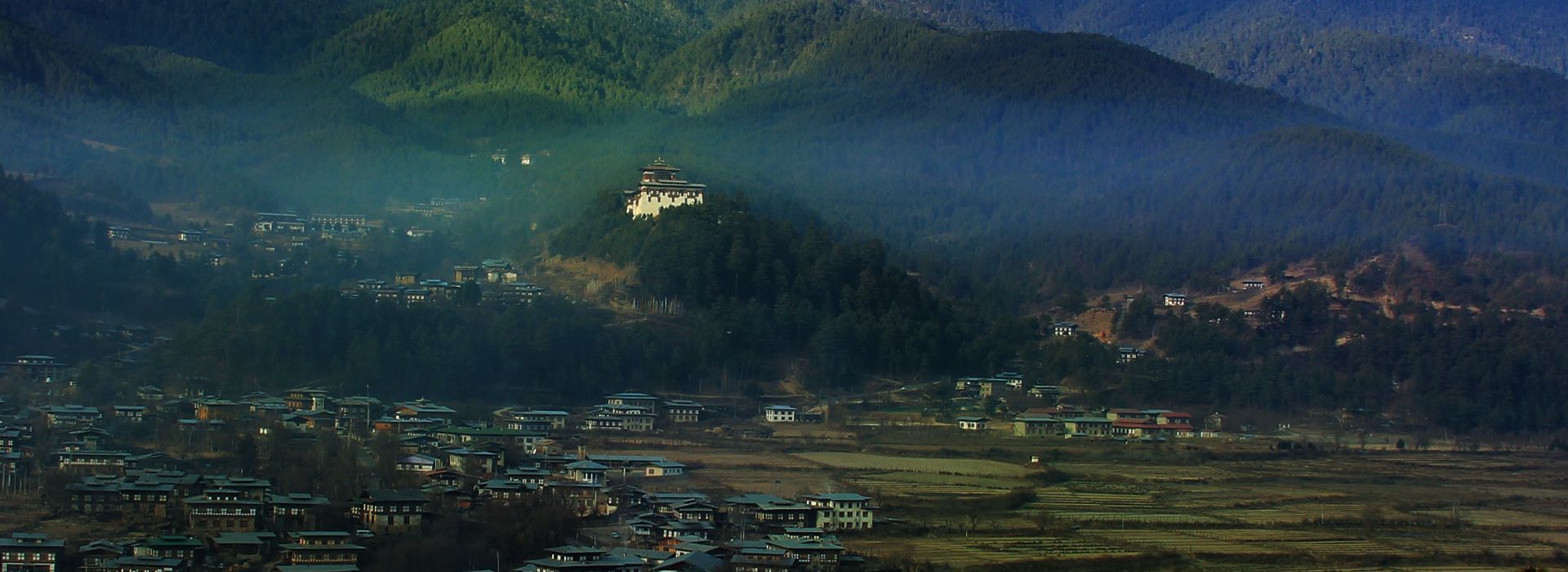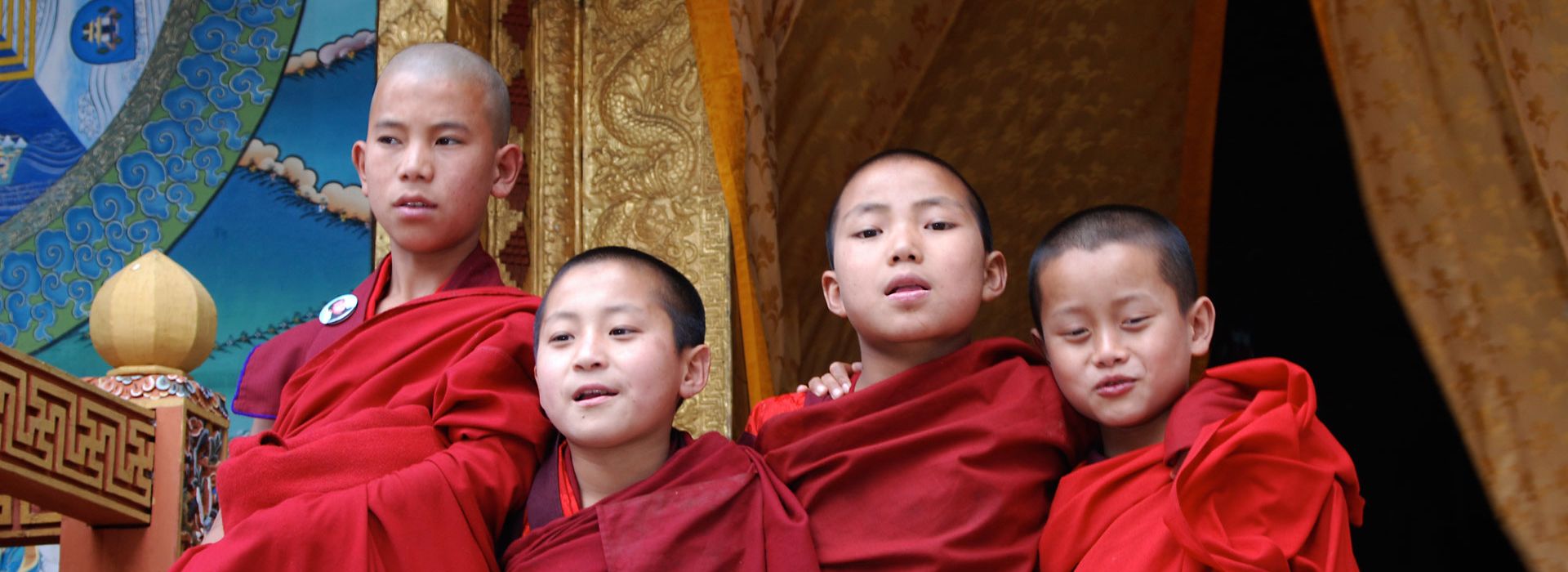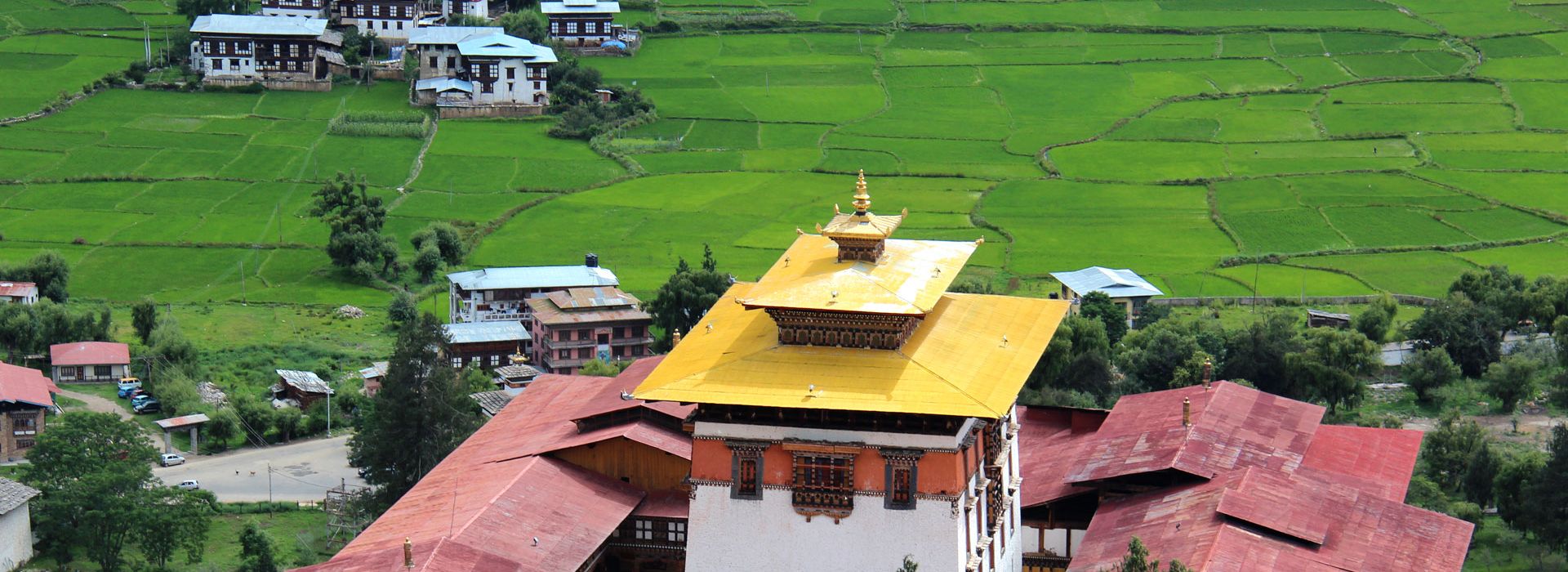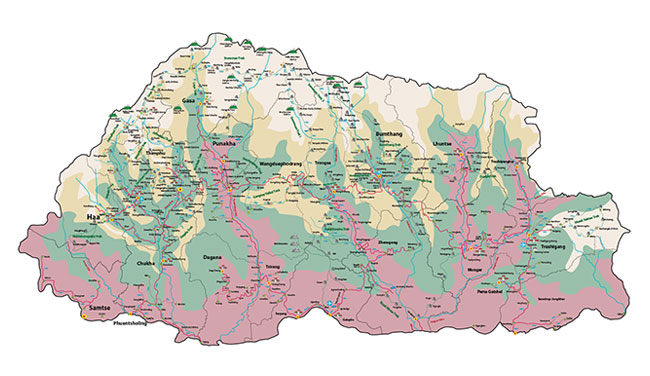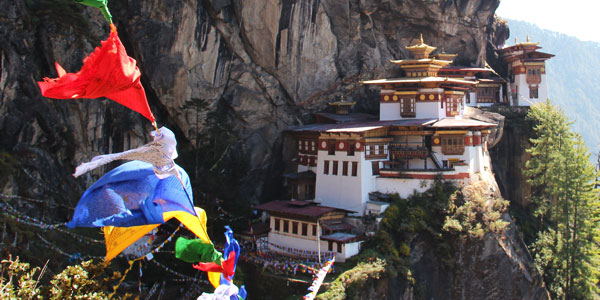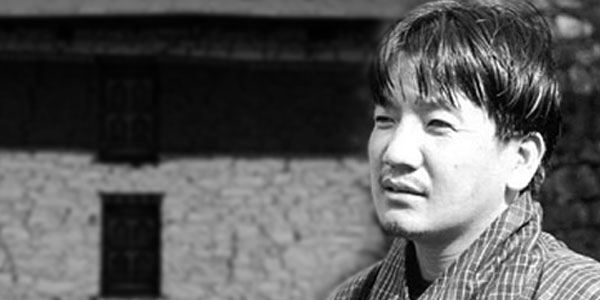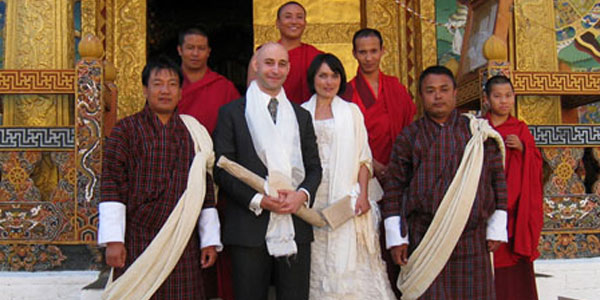Essence of Himalayas
6 Days 5 Nights
Tour Facts
- Duration: 6 Days 5 Nights
- Season: Throughout year
- Tour Starts: Paro
- Tour Ends: Paro
- Places to visit: Paro, Thimphu, Punakha & Wangdue valleys
- Group Size: 1 pax & above
Package Includes
Three-star plus hotel accommodation, three meals a day, SUV/mini bus/coaster, guides, trekking gears, camping equipments, entry fees, mineral water, cultural program (in groups of 10 or more people), & taxes.
Package Excludes
Air tickets, travel insurance, drinks, visa fee & laundry
Video
We land at Paro airport, and begin exploring the four districts in western Bhutan, all replete with history and culture. We look at fortresses and palaces built on dizzying hilltops and spurs, we travel back in time by visiting ancient temples, we look at farmlands, we take a peek into the rhythm of the people’s daily lives, and we absorb the overwhelming nature and breathtaking views of Himalayan landscapes.
Attraction
- In Paro, we see the castle-fortress at Rinpung, the ruins of the “Victory Fortress at Drugyel”, the National Museum, and the 7th century temple complex at Kurje. We hike to Taktshang monasterymonastery (Tiger’s Lair), an edifice on a sheer cliff wall 800 meters above the valley floor.
- In Thimphu, we visit the magnificent castle-fortress of Tashi Chho Dzong, the seat of power. Then we go see other places of interest like the Memorial Stupa, traditional paper factory, Folk Heritage Museum, Textile Academy, Handicraft Emporium, the site of the world’s biggest Buddha statue, etc.
- In Punakha and Wangdue valleys, we visit the “Temple of Fertility” at Lobesa, the majestic Punakha castle-fortress flanked by “male” and “female” rivers, and Khamsum Yuelley Namgyel Stupa. We look at the ongoing reconstruction of Wangdue fortress which was tragically gutted a few years ago.
Detailed Itinerary
Day 1: Paro–Thimphu
Fly into the Kingdom amid a breathtaking vista of the world’s highest mountains, a literal ascent into the heavens. The perennially snow-covered mountains we pass by during the flight include Mt Everest (the highest peak in the world), Kanchenjunga (the world’s third highest peak) and other peaks revered by the Bhutanese as the “Abode of the Gods”. Finally, land at Paro International airport, an adrenaline-rushing experience as we take a hair-raising descent onto a narrow strip of flatland flanked by the mountains. A short respite after the landing, we begin our Bhutanese adventure. We visit historical places in and around Paro valley, a scenic sojourn in Bhutan’s most beautiful valley, followed by an hour-long drive to Thimphu, the capital city.
Day 2 :Thimphu sightseeing
The capital city is Bhutan in a miniscule. Its population of 130,000 people come from every nook and cranny of the Kingdom, providing a rare glimpse of a mix of culture, customs and traditions around which Bhutan has built its identity as a nation. Among the historical places, we visit the Memorial Stupa built in the finest tradition of Buddhist architecture, the 12th century Changangkha monastery which blesses every Bhutanese child born in Thimphu valley, and the 17th century Tashichhodzong that serves as the seat of the central government and also houses the office of the King. We can also see the parliament house where Bhutan’s political leaders meet and take decisions that chart out the country’s destiny.
Other attractions include short trips to the Folk Heritage Museum, Textile Academy, Academy of Art and Craft, the site of the world’s largest Buddha statue, and the Thimphu viewpoint at Sangaygang. Towards late afternoon, we will take a stroll around town and, probably, also see a traditional game of archery which is popular for its accompanying taunts and merriment.
Day 3: Thimphu – Punakha/Wangdue
Today, we head to the interior, to Punakha-Wangdue valley that is famous as the ancient capital of Bhutan and where the agrarian rural life is best exemplified by terraced rice fields and villages teeming with traditional farm houses. The first 45 minutes of drive takes us to Dochula pass (3,100m) which is perhaps the only stopover in the entire Himalayan region that affords a stunning view of the mighty and impregnable mountains on the roof of the world. From the pass, we begin a gradual descent through roadsides filled with rhododendrons, bamboo groves, other alpine flowers of all shades and hues, besides birds and numerous other fauna species along the way.
On touching the valley floor, we visit the Temple of Fertility in Lobesa which is renowned for blessing infertile couples with children, and the 17th century monastery-palace-fortress called Wangduephodrang Dzong that is being rebuilt after destruction by a tragic fire. But our main place of interest for the day is Punakha Dzong, a huge 17th century monastery-fortress plus ancient capital on whose corridors of power walked Bhutan’s ancient leaders who defined much of the Bhutanese history. The monument is spectacularly built between two rivers and appears like a giant ship sailing on a huge mass of water.
Day 4: Punakha-Paro
We drive to Paro and, towards afternoon, visit the 7th century Kyichu Monastery, the oldest Buddhist monument in the Kingdom that abounds with mythical tales from yesteryears. We also see the ruins of Drugyal fortress where, once upon a time (in the 17th century), the Bhutanese militia beat the Tibetan invaders and consolidated the Bhutanese state. We will also visit the National Museum and Paro Rinpong Dzong, a massive castle-fortress which today is the venue of one of Bhutan’s biggest annual festivals, the Paro Tshechu. We wrap up the day after visiting a farm house.
Day 5: Paro–Taktshang hike
The best is saved for the final day. Today, we hike to Taktshang monastery, perched on a sheer cliff face, 800 meters above the valley floor. No one has any clue as to how this architectural feat was achieved, although some even go to the length of attributing the role of the supernatural forces in its construction. Anyway, the myths surrounding this temple has it that the place was blessed in the 8th century by tantric Buddhist master Guru Padma Sambhava who visited the place astride a ferocious tigress believed to be a miraculous transformation of the master’s famous consort, Yeshey Tshogyal.
Apart from the myths, the hike is beautiful as it meanders along a forested trail that is as old as the monastery itself. We take a short stroll in Paro town after the hike.
Day 6: Paro–Delhi/Bangkok/Kathmandu
We bid you farewell today. May you have a safe journey and take back lots of fond memories from the Happiness Kingdom.
